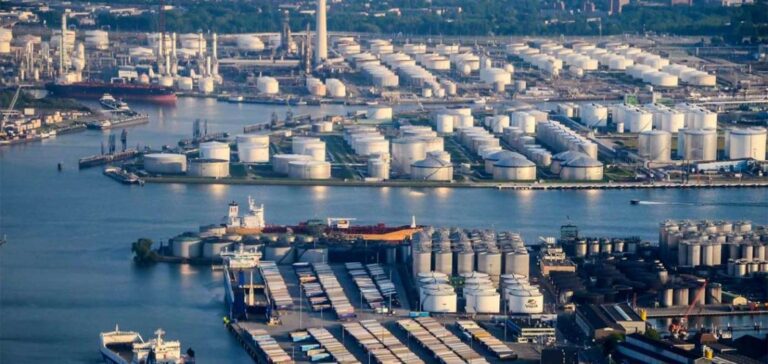Dutch company Hydrogen Chemistry Company (HyCC) has announced the development of H2Next, a large-capacity electrolysis plant project in Rotterdam. The facility aims to produce 25,000 tonnes of green hydrogen per year to supply refineries, the chemical industry and the mobility sector in the Port of Rotterdam. The announcement was made on May 21 during the World Hydrogen Summit.
Land agreement signed with the Port of Rotterdam
HyCC has signed an agreement with the Port of Rotterdam Authority to reserve a plot of land on the Maasvlakte, a strategic site near the planned landfall of several major offshore wind farms. The selected location is part of the port’s first hydrogen conversion park, designed to centralise infrastructure for low-carbon hydrogen production and distribution.
The site’s proximity to future offshore renewable electricity sources in the North Sea will enable a direct power supply for electrolysis operations. Connection to offshore wind farms is expected to improve supply stability and reduce reliance on conventional energy sources.
A project designed for industrial export in Northwest Europe
Beyond the local market, HyCC intends to link H2Next to the national hydrogen network and the Delta Rhine Corridor, a cross-border pipeline project connecting the Netherlands with Germany. This interconnection will allow locally produced hydrogen to be delivered to other industrial hubs across Northwest Europe.
According to information provided by HyCC, the project is currently in the final stage of its feasibility study. The company targets a final investment decision by 2028. Commercial operations at the plant are expected to begin around 2030, aligning with national and European infrastructure timelines for hydrogen deployment.
Production targets and timeline set
H2Next represents one of the first tangible steps toward scaling up green hydrogen production in the Netherlands, with an estimated electrolyser capacity of around 75 megawatts. The site will generate hydrogen through water electrolysis powered by renewable electricity, with no direct carbon emissions.
“This project is part of our strategy to develop large-scale hydrogen infrastructure to support industrial transformation,” said HyCC Chief Executive Officer Stijn van Els during the summit. The total investment value has not yet been disclosed.






















